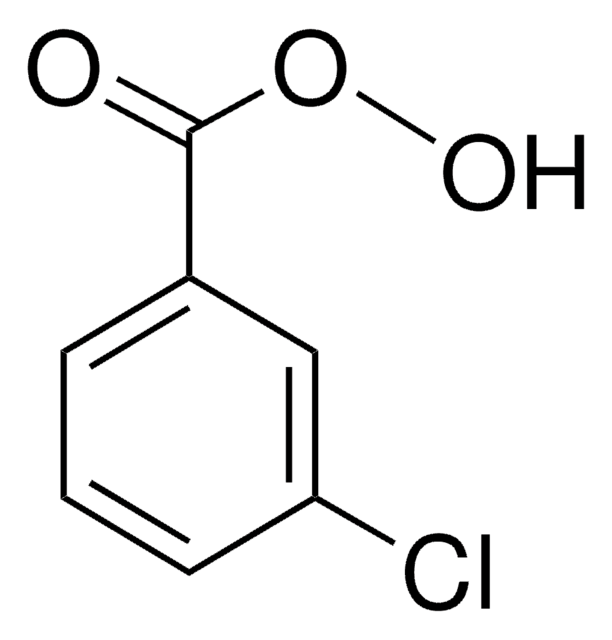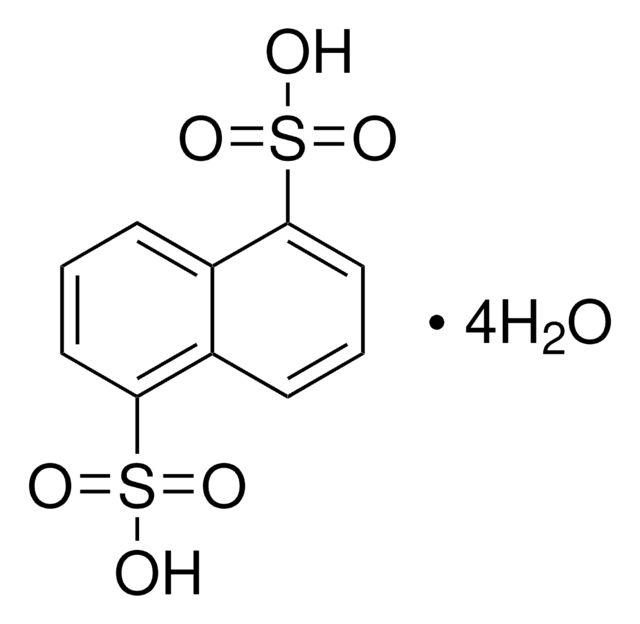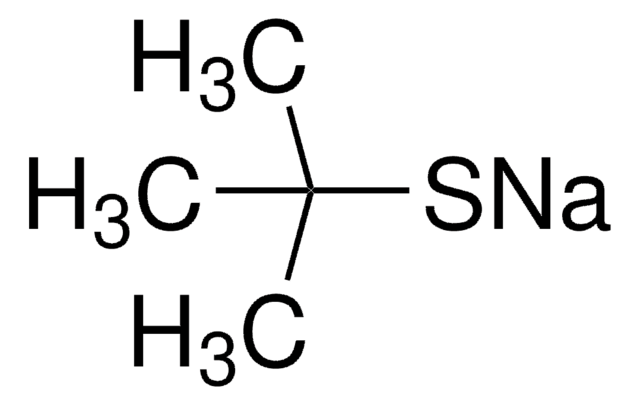281018
Sodium thiomethoxide
95%
Synonym(s):
Sodium methanethiolate, Methanethiol sodium salt, Sodium thiomethoxide
About This Item
Recommended Products
Assay
95%
form
powder or crystals
reaction suitability
core: sodium
SMILES string
[Na+].C[S-]
InChI
1S/CH4S.Na/c1-2;/h2H,1H3;/q;+1/p-1
InChI key
RMBAVIFYHOYIFM-UHFFFAOYSA-M
Looking for similar products? Visit Product Comparison Guide
Related Categories
General description
Application
- As a precursor to synthesize sulfonyl-containing dipolar glass polymers.
- To fabricate semiconductors for organic field effect transistors.
- To synthesize mono- and dithiols of tetraethylene glycol andpoly(ethylene glycol)s via transesterification reaction.
Signal Word
Danger
Hazard Statements
Precautionary Statements
Hazard Classifications
Acute Tox. 3 Oral - Flam. Sol. 1 - Skin Corr. 1A
Storage Class Code
4.1B - Flammable solid hazardous materials
WGK
WGK 3
Flash Point(F)
Not applicable
Flash Point(C)
Not applicable
Personal Protective Equipment
Choose from one of the most recent versions:
Certificates of Analysis (COA)
Don't see the Right Version?
If you require a particular version, you can look up a specific certificate by the Lot or Batch number.
Already Own This Product?
Find documentation for the products that you have recently purchased in the Document Library.
Customers Also Viewed
Our team of scientists has experience in all areas of research including Life Science, Material Science, Chemical Synthesis, Chromatography, Analytical and many others.
Contact Technical Service













